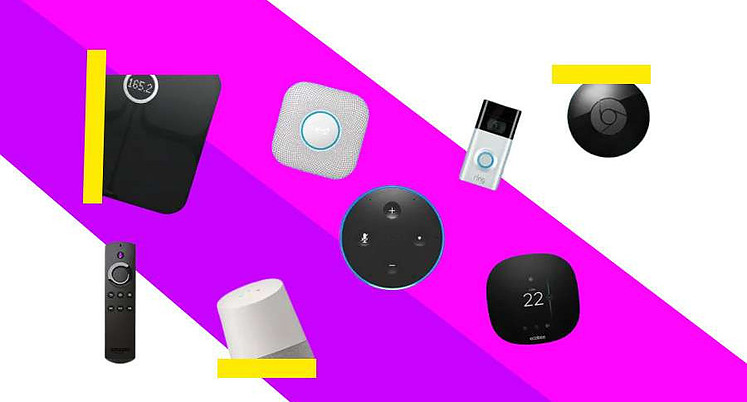In recent years, artificial intelligence (AI) has made significant strides in various domains, revolutionizing industries and improving efficiency. One area where AI is increasingly making its presence felt is in the home. From smart speakers that can control household appliances to advanced security systems that can detect intruders, AI is reshaping the way we live and interact with our surroundings. Impact-Site-Verification: undefined
Artificial intelligence (AI) is rapidly emerging as a transformative force in various aspects of our lives, and the home is no exception. The fusion of AI technology with our domestic environment is reshaping the way we live, offering innovative solutions that enhance convenience, security, and sustainability. This comprehensive report delves into the myriad ways in which AI is revolutionizing home life, with a particular focus on the potential benefits and ethical considerations.
AI-Powered Home Automation
The integration of AI in home automation is perhaps one of the most significant breakthroughs in recent years. Smart home devices, imbued with AI capabilities, have made it possible for homeowners to control and manage various aspects of their living spaces remotely and efficiently. AI-driven thermostats, to include a learning thermostat, exemplify how machine learning algorithms can adapt to individual temperature preferences, optimizing energy consumption and reducing utility costs.
Voice-activated AI assistants, like Amazon’s Alexa and Google Assistant, have become central figures in smart homes. These digital companions can perform a multitude of tasks, from controlling lights and appliances to answering questions and setting reminders. Their natural language processing abilities have made interactions more intuitive, improving the user experience and simplifying daily routines.
Moreover, AI is making homes safer through advanced security systems. These systems employ machine learning algorithms to analyze data from various sensors, enabling them to recognize patterns and detect anomalies. With the ability to differentiate between normal activities and potential security threats, these AI-powered systems offer enhanced protection and peace of mind to homeowners.
AI in Entertainment and Convenience

AI is also transforming our home entertainment experiences. Streaming services like Netflix and Spotify use AI algorithms to recommend content based on our viewing and listening habits, creating personalized entertainment experiences. AI-powered virtual assistants can provide real-time information on weather, traffic, and news, making them invaluable for daily convenience.

In the kitchen, AI is making cooking more a accessible with smart appliances that can suggest recipes based on available ingredients, adjust cooking times and temperatures, and even order groceries when supplies run low.
AI and Home Healthcare Assistance
Healthcare at home is another arena where AI is making a profound impact. Smart health devices are capable of monitoring vital signs and tracking various health metrics. Wearable fitness trackers, such as Fitbit and Apple Watch, utilize AI algorithms to provide insights into physical activity, sleep patterns, and overall health. These devices empower individuals to take charge of their well-being and make informed decisions about their lifestyles.
AI-powered chatbots and virtual nurses are increasingly being deployed to offer immediate medical advice and reminders for medication. These digital healthcare assistants can engage in natural language conversations with patients, addressing their concerns and providing guidance on managing chronic conditions. This not only enhances patient care but also alleviates the strain on healthcare systems by reducing the need for in-person consultations. AI and Home Efficiency By identifying areas of inefficiency, these systems suggest practical measures to reduce waste, leading to lower utility bills and a reduced carbon footprint.
AI and Home Efficiencies
Renewable energy sources like solar panels and wind turbines are becoming more accessible to homeowners thanks to
management systems are equipped with AI algorithms that analyze household energy consumption patterns.
AI machine learning algorithms optimize the energy production of solar panels by adjusting their orientation and tracking the sun’s position. Additionally, AI can manage battery storage systems efficiently, ensuring that excess energy is stored for later use, further reducing reliance on conventional power sources.
Water conservation is another facet of sustainability where AI plays a role. Smart sensors can detect water leaks and inefficient water usage, immediately alerting homeowners to take corrective action. By curbing water wastage, AI-driven systems contribute to resource conservation and cost savings.
Ethical and Privacy Considerations
While the benefits of AI in the home are undeniable, the rapid proliferation of AI technology raises ethical and privacy concerns that demand our attention. Devices with constantly active microphones or cameras, like smart speakers and home security systems, can pose risks to personal privacy if not adequately secured. Unauthorized access to these devices can result in the unauthorized recording of private conversations or video footage.
Data security is another critical issue. The vast amount of personal information collected by AI systems, including browsing habits, voice recordings, and even biometric data, presents a tempting target for cybercriminals. Ensuring robust encryption and data protection measures is paramount to safeguarding the privacy of homeowners.
Additionally, AI has the potential to perpetuate biases and inequalities, especially when it’s employed in decision-making processes. For example, AI algorithms used in insurance pricing or hiring may inadvertently discriminate against certain demographics. It is crucial to implement fairness and transparency in AI systems to prevent such biases and ensure that AI serves all members of society equitably.
Future Outlook and Conclusion
The integration of AI into our homes is an ongoing evolution with limitless possibilities. As technology continues to advance, we can expect even greater integration of AI into our daily lives, with more intuitive and personalized experiences. However, it is imperative that we address the ethical and privacy challenges proactively to ensure that the benefits of AI are enjoyed responsibly and without compromise.
In conclusion, AI is not just a futuristic concept; it is already making significant contributions to how we live in our homes. From automation and entertainment to healthcare and sustainability, AI is a transformative force. As we embrace these technological advancements, it is our collective responsibility to strike a balance between reaping the benefits of AI and safeguarding our privacy and ethical principles. The future of home life is undeniably intertwined with AI, and by approaching it thoughtfully, we can create a safer, more convenient, and sustainable domestic environment for all.
